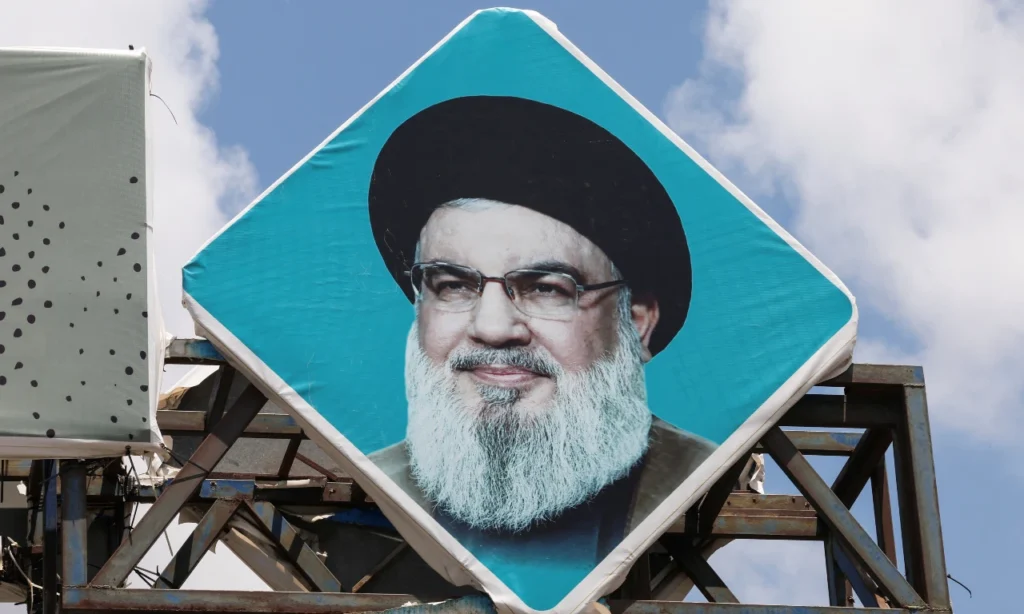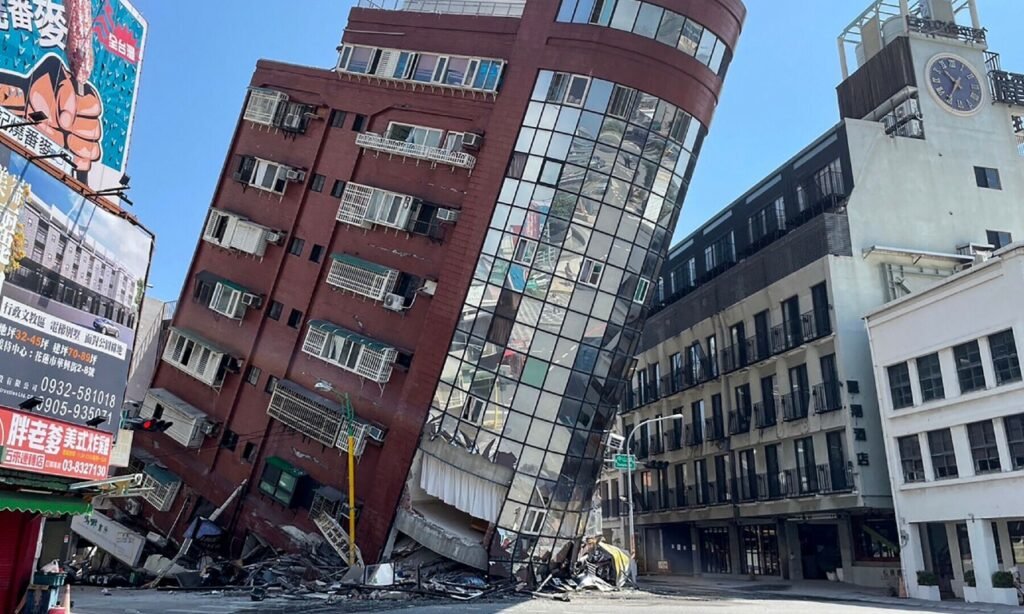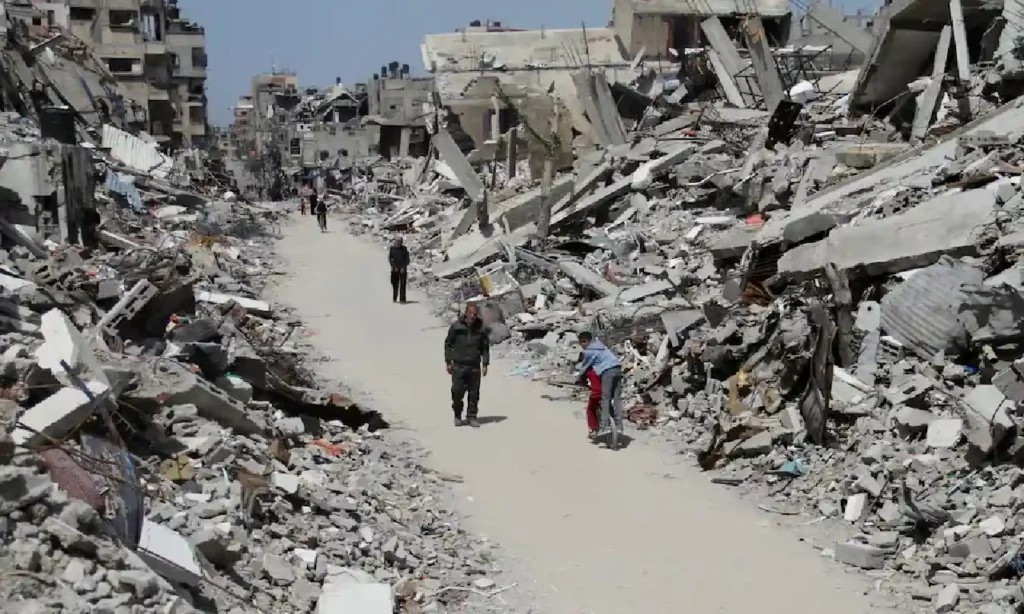In a significant escalation of hostilities, Israel kills Hezbollah leader Hassan Nasrallah in an air attack on Beirut, Lebanon’s capital. Both the Israeli military and Hezbollah confirmed Nasrallah’s death, marking a turning point in the ongoing conflict between Israel and the Iran-backed militant group. The killing comes amid a broader Israeli campaign targeting Hezbollah, which has played a pivotal role in the region’s geopolitical tensions for decades.
The Strike that Killed Nasrallah
On Friday, a massive Israeli airstrike hit Beirut’s southern suburb of Dahiyeh, a stronghold of Hezbollah. The attack not only took the life of Hassan Nasrallah, the group’s leader, but also killed Ali Karki, the commander of Hezbollah’s southern front, and several other senior commanders. According to Lebanon’s health ministry, the airstrike flattened six apartment buildings and left 91 people injured.
In a statement, Israeli military spokesperson Lieutenant Colonel Nadav Shoshani announced the operation’s success, stating: “Hassan Nasrallah is dead.” The air raid dealt a significant blow to Hezbollah’s leadership, with most of the senior leaders eliminated, according to Israeli reports.
Hezbollah’s Response and Future Plans
Hezbollah quickly confirmed Nasrallah’s death and issued a statement pledging to continue their resistance against Israel. They vowed to defend Lebanon, support Gaza and Palestine, and carry on the fight despite the loss of their longtime leader. Hezbollah’s statement noted that Nasrallah and other members were killed following “the treacherous Zionist strike on Beirut’s southern suburbs.” Despite this major setback, the group remains resolute, signaling further escalation in the conflict.
Hassan Nasrallah: A Key Figure in Middle Eastern Politics
Nasrallah, 64, had led Hezbollah for more than three decades, becoming a major player in the regional dynamics of Lebanon and the Middle East. Under his leadership, Hezbollah grew from a small militant faction into a highly organized military force, operating as both a political party and an armed group with significant influence across Lebanon. To his supporters, Nasrallah was a symbol of resistance, praised for standing up to Israel and defying the West. For his detractors, however, he was seen as the head of a dangerous terrorist organization and an Iranian proxy, instrumental in destabilizing the region.
Al Jazeera’s Stefanie Dekker described Nasrallah as a “larger-than-life figure” who built Hezbollah into a disciplined, powerful force capable of challenging Israel. His death is viewed as a major setback for the group, especially given his key role as a military strategist and symbolic leader.
The Implications of Nasrallah’s Death
While Nasrallah’s death marks a significant victory for Israel, the Israeli military has made it clear that their offensive against Hezbollah is not over. Hezbollah still possesses tens of thousands of rockets, and the group’s capability to launch simultaneous strikes against Israel remains intact. “The message is simple,” said Herzi Halevi, Israel’s Chief of Staff. “Anyone who threatens the citizens of Israel – we will know how to reach them.”
The loss of Nasrallah also poses challenges for Hezbollah’s future leadership. Analysts have pointed out that there is no other figure within the organization with the same charisma and strategic influence that Nasrallah wielded. His death not only affects Hezbollah but also Iran, which has long used the group as a key ally in its regional power struggle with Israel and the West.
The Human Toll of the Escalating Conflict
The airstrike that killed Hassan Nasrallah is part of a broader campaign by Israel that has had devastating consequences for Lebanon. The recent conflict has already claimed over 720 lives in Lebanon since hostilities intensified. The United Nations reports that more than 211,000 people have been displaced, many of them fleeing southern Lebanon for safety. In Beirut, residents of Dahiyeh, the area hardest hit by the Israeli strikes, have evacuated to other parts of the city, leaving behind devastated neighborhoods.
What Comes Next?
The death of Hassan Nasrallah in an Israeli air attack on Beirut is a pivotal moment in the ongoing conflict between Israel and Hezbollah. Nasrallah’s leadership spanned over three decades, during which he shaped Hezbollah into a formidable force. His death is a major blow to the organization, but it is unlikely to be the end of Hezbollah’s activities. As both sides brace for further escalation, the consequences of this conflict will continue to reverberate across Lebanon and the wider region. Israel kills Hezbollah leader Hassan Nasrallah in air attack, but the fight is far from over.
“Stay In Touch With Us For More Latest News & Updates. Follow Us On Twitter and Facebook To Stay Aware”




